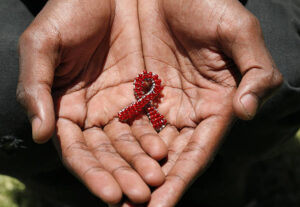
Early Signs of HIV
Identifying early signs of HIV in women is crucial for timely diagnosis and treatment. In Kenya, where HIV remains a significant health challenge, awareness can empower women to seek medical help early.
This blog will explore the early symptoms of HIV in women, guiding you through what to look for and when to consult a healthcare professional.
Understanding HIV in Women
HIV, or Human Immunodeficiency Virus, attacks the body’s immune system, making it harder to fight off infections and diseases. In women, the symptoms can vary widely, and many may not even realize they are infected initially. Therefore, understanding what are the early signs of HIV in females is essential for proactive health management.
Common Early Symptoms of HIV in Women
- Fatigue
One of the first signs of HIV in women can be persistent fatigue. If a woman experiences unexplained tiredness that doesn’t improve with rest, it could be an early symptom. - Fever and Chills
A mild fever, accompanied by chills, is another common early symptom of HIV in women. This fever can feel similar to a flu and often comes and goes. - Night Sweats
Excessive sweating during the night is a significant symptom that can indicate the onset of HIV. Women may wake up drenched and uncomfortable, which could signal the virus’s activity. - Swollen Lymph Nodes
Women may notice swelling in the lymph nodes, particularly in the neck or underarm area. This occurs as the body’s immune response is activated, fighting the virus.

Recognizing Other Symptoms of HIV in Women
In addition to the common early symptoms mentioned, other symptoms of HIV in women may manifest over time. Here are some to watch for:
- Sore Throat
An unexplained sore throat may occur alongside other flu-like symptoms. This can be particularly concerning if it persists without other identifiable causes. - Unexplained Weight Loss
If a woman experiences sudden and unexplained weight loss, it could be a symptom of HIV. Weight changes should always be discussed with a healthcare professional. - Skin Rashes
Skin issues, including rashes or unusual lesions, can also be early signs of HIV in women. These may not be painful but can signal an underlying issue. - Menstrual Irregularities
Changes in menstrual cycles, such as missed periods or increased pain, may occur in women with HIV. This symptom can often be overlooked but is important to note.
How Do You Know if a Female Has HIV?
To determine whether a woman has HIV, healthcare providers typically conduct blood tests. These tests can detect the presence of the virus or antibodies produced in response to the infection. Regular testing is vital for those at risk or exhibiting symptoms. Women who believe they may have been exposed to HIV should consult a healthcare provider immediately.
The Importance of Early Diagnosis
Understanding the signs and symptoms of HIV in women can lead to early diagnosis and treatment. Early intervention not only improves health outcomes but also reduces the risk of transmission to others. In Kenya, various organizations and healthcare facilities offer testing and counseling services, making it easier for women to access care.
Myths and Misconceptions
Unfortunately, myths surrounding HIV continue to hinder women from seeking help. Here are a few common misconceptions:
- HIV is Only a Men’s Issue
Many believe that HIV primarily affects men. However, HIV in women is a significant public health issue that deserves equal attention. - You Can Tell by Looking
Some people think they can identify whether someone has HIV by their appearance. This is false; many people with HIV look healthy and may not show symptoms for years. - Only High-Risk Groups are Affected
While certain populations may be at higher risk, HIV can affect anyone. Awareness and testing are critical for all women.
Seeking Help and Support
Women who recognize early signs of HIV in themselves or others should not hesitate to seek help. Local clinics and hospitals often have resources available for testing and counseling. Moreover, support groups can provide emotional assistance and help in navigating the healthcare system.
Conclusion
Recognizing the early signs of HIV in women is vital for effective management and care. By understanding the common symptoms and staying informed, women in Kenya can take proactive steps towards their health. Early diagnosis can lead to better health outcomes, reducing the impact of the virus on individual lives and the community.
If you or someone you know is experiencing signs and symptoms of HIV in women, don’t hesitate to seek medical attention. Knowledge and timely action can make a world of difference.





